Book-It 'o9! Book #8
More of the Fifty Books Challenge! Library request for the story of a legendary, bisexual (hep hep!), fascinating, and forgotten Silent star.
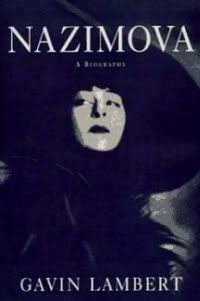
Title: Nazimova: A Biography by Gavin Lambert.
Details: Copyright 1997, Knopf Inc
Synopsis (By Way of Back Flap Promotion): A major rediscovery, this full-scale biography profiles Nazimova, the electrifying Russian-born actress who brought Stanislavsky and Chekhov to American theatre--a legend of the stage and screen for 50 years, and then strangely forgotten. With exclusive access to her unpublished memoirs, letters, and notes, Lambert gives readers a brilliant portrait of this extraordinary woman. 120 photos.
Why I Wanted to Read It: I was familiar with the name Alla Nazimova but didn't really know much about her. Then I found out thanks to Kevyn Aucoin's book Face Forward wherein he makes up Isabella Rossellini to resemble Nazimova, that she was also bisexual and as well led a fairly checkered life. Also, I love "forgotten" screen stars.
How I Liked It: I desperately wanted to like this book. DESPERATELY. Alla Nazimova has a fascinating life story. The book starts out strong, pulling the reader into Nazimova's legend and lore, Lambert hunting for anyone who alive who actually saw Nazimova perform during her play years or frankly just up close and is rewarded with the particularly poetic testimony of (among others)journalist Djuna Barnes who interviewed Nazimova in 1930 and described "Gorgeous eyes, winged nostrils and an upper lip to match, made doubly dangerous by a lower, which for a brief inch in its middle, ran as straight as any Puritan praying for rain."
The book continues its strong start as Lambert further details finding out any information he can regarding Nazimova, including an interview with her sole surviving relative, her 90-year-old niece Lucy Olga, who has no flattering words to say about her aunt, yet points out everything from her Fabergé silver and topaz bracelet to the Fabergé spoons on display, to the exquisite portrait of Nazimova, to the antique Chinese-red dressing table to the very chair Lambert sits in, as gifts from her aunt. By the end of the interview, Lambert concludes he know understood Nazimova's comment in a letter to her sister Nina (mother of Olga) after a "particularly disagreeable family scene with the both of them": "I don't believe in family anymore."
The book continues on an up note, taking advantage of Nazimova's notes from her unfinished autobiography. The story woven is one of survival of an abusive father and the mother he drove away, various "foster homes", her severely mentally ill stepmother, her tempestuous relationship with her sister right up until her days as a struggling actress and part time prostitute (which she advanced into "kept woman"). Once it gets into her marriage, however and runs out of Nazimova's autobiography, the book starts to falter. Lambert's storytelling fails as he scrambles from source to source, trying to piece together a story of Nazimova's life from then on. Typical for a biographer to have to juggle sources to tell the story of one's life, but it's something the reader doesn't need to be aware of. By the middle of the book, Lambert's storytelling is almost excruciating and damn near impossible to follow. He can't truly decide the series of events that happened in her life and relies too heavily on his sources to essentially tell the story for him (rather than processing the information from the various sources to form a story). He can't decide which account is which so rather than aiming for a middle ground to set the story, he simply provides verbatim frequently conflicting accounts from each source.
Nonetheless, this is still an invaluable book. Nazimova, despite having such a heavy influence on modern film and such luminaries as Garbo and Dietrich (and obviously Theda Bara although she's obscure compared to those two), is still virtually unknown. That's nearly criminal giving the impact she had and the fascinating life she led. Hopefully this book other authors will see as a springboard for a much better written Nazimova bio that readers can really get to know.
Notable: The pictures (indeed, there are 120) of Nazimova suggest she only got better looking as she got older. Not that she was ever ugly by any standard. But compare a picture of her at sixteen or at twenty to the ones of her in her early to mid forties and there's really no comparison. She was gorgeous woman. And unlike today when plastic surgery rumors are free to buzz (and perhaps accurately) about actresses in particular that get more beautiful as they age, Nazimova had no such option. She couldn't rely on collagen cheek filler or lip plumper nor "enjoy" a face lift. Her in her forties playing teenagers is actually believable (even outside the realm of the rather dodgy-to-age Silent film) and she manages to look even more exquisite than she did as an actual teenager. I love stories of people (both men and women) that grow more attractive as they age: it gives me hope!
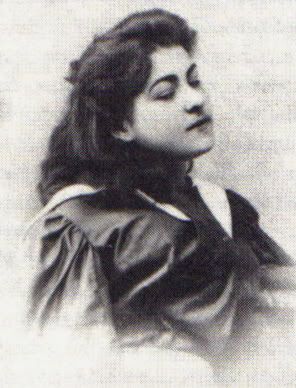
Nazimova at 15
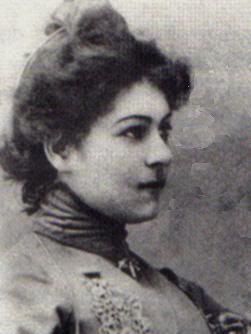
Nazimova at 18
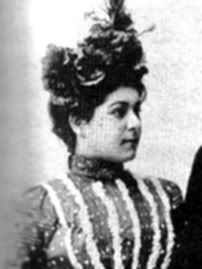
Nazimova at 20
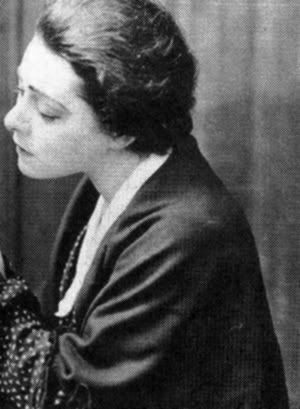
Nazimova at 37
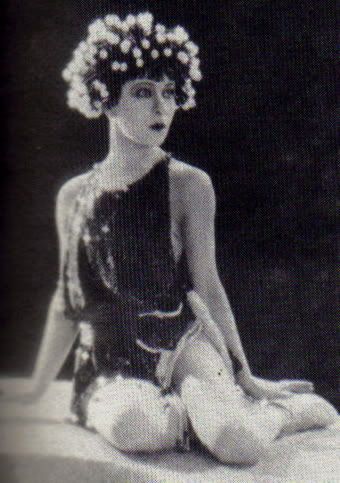
Nazimova at 42
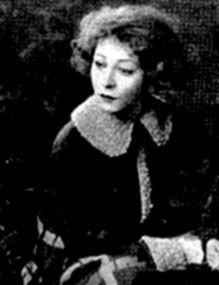
Nazimova at 43

Title: Nazimova: A Biography by Gavin Lambert.
Details: Copyright 1997, Knopf Inc
Synopsis (By Way of Back Flap Promotion): A major rediscovery, this full-scale biography profiles Nazimova, the electrifying Russian-born actress who brought Stanislavsky and Chekhov to American theatre--a legend of the stage and screen for 50 years, and then strangely forgotten. With exclusive access to her unpublished memoirs, letters, and notes, Lambert gives readers a brilliant portrait of this extraordinary woman. 120 photos.
Why I Wanted to Read It: I was familiar with the name Alla Nazimova but didn't really know much about her. Then I found out thanks to Kevyn Aucoin's book Face Forward wherein he makes up Isabella Rossellini to resemble Nazimova, that she was also bisexual and as well led a fairly checkered life. Also, I love "forgotten" screen stars.
How I Liked It: I desperately wanted to like this book. DESPERATELY. Alla Nazimova has a fascinating life story. The book starts out strong, pulling the reader into Nazimova's legend and lore, Lambert hunting for anyone who alive who actually saw Nazimova perform during her play years or frankly just up close and is rewarded with the particularly poetic testimony of (among others)journalist Djuna Barnes who interviewed Nazimova in 1930 and described "Gorgeous eyes, winged nostrils and an upper lip to match, made doubly dangerous by a lower, which for a brief inch in its middle, ran as straight as any Puritan praying for rain."
The book continues its strong start as Lambert further details finding out any information he can regarding Nazimova, including an interview with her sole surviving relative, her 90-year-old niece Lucy Olga, who has no flattering words to say about her aunt, yet points out everything from her Fabergé silver and topaz bracelet to the Fabergé spoons on display, to the exquisite portrait of Nazimova, to the antique Chinese-red dressing table to the very chair Lambert sits in, as gifts from her aunt. By the end of the interview, Lambert concludes he know understood Nazimova's comment in a letter to her sister Nina (mother of Olga) after a "particularly disagreeable family scene with the both of them": "I don't believe in family anymore."
The book continues on an up note, taking advantage of Nazimova's notes from her unfinished autobiography. The story woven is one of survival of an abusive father and the mother he drove away, various "foster homes", her severely mentally ill stepmother, her tempestuous relationship with her sister right up until her days as a struggling actress and part time prostitute (which she advanced into "kept woman"). Once it gets into her marriage, however and runs out of Nazimova's autobiography, the book starts to falter. Lambert's storytelling fails as he scrambles from source to source, trying to piece together a story of Nazimova's life from then on. Typical for a biographer to have to juggle sources to tell the story of one's life, but it's something the reader doesn't need to be aware of. By the middle of the book, Lambert's storytelling is almost excruciating and damn near impossible to follow. He can't truly decide the series of events that happened in her life and relies too heavily on his sources to essentially tell the story for him (rather than processing the information from the various sources to form a story). He can't decide which account is which so rather than aiming for a middle ground to set the story, he simply provides verbatim frequently conflicting accounts from each source.
Nonetheless, this is still an invaluable book. Nazimova, despite having such a heavy influence on modern film and such luminaries as Garbo and Dietrich (and obviously Theda Bara although she's obscure compared to those two), is still virtually unknown. That's nearly criminal giving the impact she had and the fascinating life she led. Hopefully this book other authors will see as a springboard for a much better written Nazimova bio that readers can really get to know.
Notable: The pictures (indeed, there are 120) of Nazimova suggest she only got better looking as she got older. Not that she was ever ugly by any standard. But compare a picture of her at sixteen or at twenty to the ones of her in her early to mid forties and there's really no comparison. She was gorgeous woman. And unlike today when plastic surgery rumors are free to buzz (and perhaps accurately) about actresses in particular that get more beautiful as they age, Nazimova had no such option. She couldn't rely on collagen cheek filler or lip plumper nor "enjoy" a face lift. Her in her forties playing teenagers is actually believable (even outside the realm of the rather dodgy-to-age Silent film) and she manages to look even more exquisite than she did as an actual teenager. I love stories of people (both men and women) that grow more attractive as they age: it gives me hope!

Nazimova at 15

Nazimova at 18

Nazimova at 20

Nazimova at 37

Nazimova at 42

Nazimova at 43